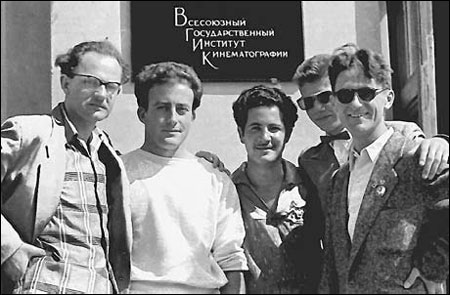
|
LIFE> Travel
 |
|
Related
Reeling in the years
By Zhao Xu (China Daily)
Updated: 2009-08-17 18:23 Yet the biggest contrast captured by Cohen's lens is the seemingly contradictory beliefs and ways of living that had come to exist in one culture. During his visit to the Beijing Children's Hospital, Cohen noticed a new X-ray department, located right next to the acupuncture room. Inside factories and shipyards, less-than-skillful administrators operated Soviet-supplied modern machinery. While vessels as large as 10,000 tons were being built, workers were seen hand-hammering the giant hull into shape. Given the speed of growth, it was no surprise for some Western economist to predict then that "within 10 years, China will become the third-biggest industrial power, right after the US and Russia". Cohen was understandably impressed, but unflinching in delivering the occasional qualms. "There were times when our visits to industrial facilities had to be canceled because the workers there were participating in 'struggle meetings' to denounce 'negative tendencies'," he says, referring to the fomenting political movements which less than a decade later culminated in the devastating "cultural revolution" (1966-76). Acute observations aside, the young Cohen also demonstrated a rare flair for journalistic objectivity. While describing the strict rationing system of the time as "limiting everyone to a very small amount (of food)", he also points out that it "enabled even the poorest people to get meat, which they couldn't afford before". Unlike his predecessors who years earlier traveled to Yan'an to meet leaders of the Chinese Communist Party in their cave dwellings, Cohen and his fellow travelers were invited to a reception given by premier Zhou, whom he describes as "moderate, intelligent, and a pragmatic realist". "Although the questions and answers were being translated from English into Chinese, on several occasions, the premier, apparently understanding English, responded to the questions before it was completely translated," recalls Cohen. As a young American fresh from serving in the army in Germany and France, Cohen was naturally drawn to "sensitive" things. Inside an automobile factory in Changchun, the cameraman spotted US-made machines despite the complete trade embargo by the US government, and inside the Nanjing University library, were books with titles including Applied Atomic Energy and Air Navigation, the latter published by the US Navy only a few months before. But it was the anti-US propaganda posters that proved the most difficult to miss. A typical one that Cohen filmed, shows a helmeted American soldier being surrounded as his jeep gets stuck in the mud. "I was not shocked at all," says Cohen, whose social psychology studies at the University of California in Los Angeles involved propaganda content analysis. These days, posters purchased on that trip, including anti-US ones, make up a crucial part of Cohen's poster collection. Robert Carl Cohen (second from left) and several of his American fellows in Moscow for the 6th World Youth Festival in the summer of 1957. Photos courtesy of Robert Carl Cohen
 While he was still traveling in China in 1957, his report was sent by plane via Moscow to the NBC headquarters in New York, undeveloped and uncensored. "The average time between my filming a scene in China and it being televised across the States was about one week," says Cohen. "But I was also given transmission time from Radio Beijing, and made several direct radio broadcasts from China to NBC in San Francisco." |